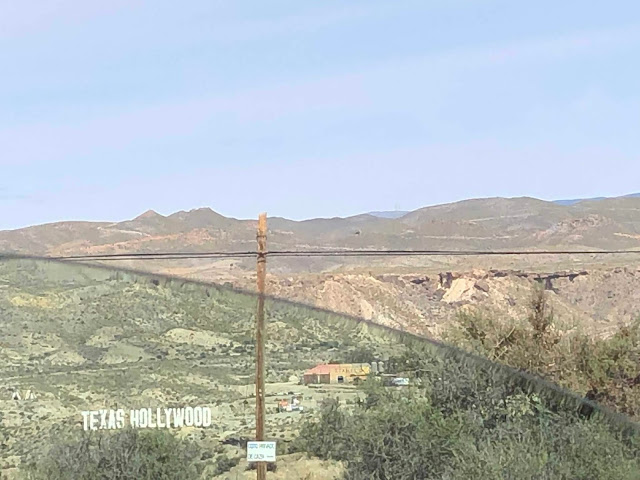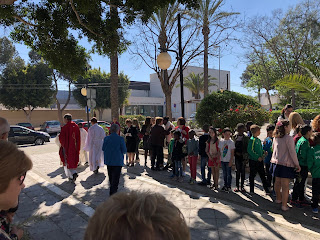Fidelity of God and the Love of My Sisters
I preached this morning for a midday prayer service, and here it is!
Gospel reading:
Mark 2:1-12
When Jesus returned to Capernaum after some days,
it became known that he was at home.
Many gathered together so that there was no longer room for them,
not even around the door,
and he preached the word to them.
They came bringing to him a paralytic carried by four men.
Unable to get near Jesus because of the crowd,
they opened up the roof above him.
After they had broken through,
they let down the mat on which the paralytic was lying.
When Jesus saw their faith, he said to him,
“Child, your sins are forgiven.”
Now some of the scribes were sitting there asking themselves,
“Why does this man speak that way? He is blaspheming.
Who but God alone can forgive sins?”
Jesus immediately knew in his mind what
they were thinking to themselves,
so he said, “Why are you thinking such things in your hearts?
Which is easier, to say to the paralytic,
‘Your sins are forgiven,’
or to say, ‘Rise, pick up your mat and walk’?
But that you may know
that the Son of Man has authority to forgive sins on earth”
–he said to the paralytic,
“I say to you, rise, pick up your mat, and go home.”
He rose, picked up his mat at once,
and went away in the sight of everyone.
They were all astounded
and glorified God, saying, “We have never seen anything like this.”
it became known that he was at home.
Many gathered together so that there was no longer room for them,
not even around the door,
and he preached the word to them.
They came bringing to him a paralytic carried by four men.
Unable to get near Jesus because of the crowd,
they opened up the roof above him.
After they had broken through,
they let down the mat on which the paralytic was lying.
When Jesus saw their faith, he said to him,
“Child, your sins are forgiven.”
Now some of the scribes were sitting there asking themselves,
“Why does this man speak that way? He is blaspheming.
Who but God alone can forgive sins?”
Jesus immediately knew in his mind what
they were thinking to themselves,
so he said, “Why are you thinking such things in your hearts?
Which is easier, to say to the paralytic,
‘Your sins are forgiven,’
or to say, ‘Rise, pick up your mat and walk’?
But that you may know
that the Son of Man has authority to forgive sins on earth”
–he said to the paralytic,
“I say to you, rise, pick up your mat, and go home.”
He rose, picked up his mat at once,
and went away in the sight of everyone.
They were all astounded
and glorified God, saying, “We have never seen anything like this.”
---------------------------------------------------------------
“Trusting in the fidelity of God and in the love of my
sisters, I make these vows.”
I first heard this phrase, really heard it, about six years
ago. It’s part of the vow formula for my
congregation. The first time I heard it,
we were celebrating the 40th anniversary of two sisters. As part of our celebration, one of them
reflected with us about what that phrase meant to her, throughout her years in
the Society of the Sacred Heart.
I had just entered the order, and it was the first time that
I really took in what “the fidelity of God” means. God is faithful to us! I had always thought it was the other way
around, that my faith depended on me.
But no, I began to see that God’s fidelity is what counts. And God isn’t just faithful, God is fidelity. I must be faithful too, but my doubts and
insecurities are just part of what it means to be human. If I can place my trust, imperfect as it is,
in God’s perfect fidelity, then I can be sure of something. I can rest in it. God’s fidelity carries with it God’s
perfection and strength. It’s a reminder
to me that I am not God, and I do not need to carry every burden on my own shoulders,
especially not guilt at imperfection. As
much as I have been trained to rely on myself, trusting in God’s fidelity takes
an insupportable weight off my shoulders and places it on one to whom it weighs
no more than a feather.
But of course, it doesn’t stop with that—the full line
again, “trusting in the fidelity of God and in the love of my sisters.” When I and my sisters make vows to God, we do
it in community. We are dependent on one
another for care, support, help.
For each one of us, both my sisters and each one of us
present here today, we live in multiple communities and depend on many
different people for the support we need.
I have been so blessed over the last two and a half years to have this learning
community on my side. I depend on our
common direction and goals, our shared prayer and fellowship to encourage me in
what I do daily to promote God’s reign here on earth, in our church and our
broken world. We are called into service
not alone, but as a community.
Today’s gospel gives us such a colorful scene. The charisma of Jesus has attracted the
crowds, filled the house with those who can’t get enough of what he has to
say. Perhaps he’s speaking of
forgiveness, or healing, or God’s love for the little ones. Into the midst of his preaching, a group of
men break through the ceiling so that their friend can receive healing and
forgiveness—a spontaneous illustration for Jesus of God’s desire that we know
love, forgiveness, and healing. A
demonstration of profound faith, vulnerability, and the reliance we have on our
community.
This scene offers us a lesson about trusting in God and
relying on one another. The paralytic
can do nothing for himself. Can you
imagine his embarrassment if the healing didn’t work, after he had asked his
friends to cut through the roof of someone’s house? But with both his faith in God and the help
of his friends, he is healed.
We all need healing for something, and the last year has
given us any number of wounds—from the physical to the emotional and
spiritual. Our Institute has seen
changes that may have left us shaken.
Our city and our nation are reeling with the aftermath of Ferguson and
generations of racial division and distrust.
Our world suffers from national and religious divisions that have led to
widespread violence and popular protest, and that is in addition to worldwide
unequal distribution of wealth and destruction of the environment in which we
live. We need healing -- individually,
institutionally, culturally, and in the very soil of our world.
Like the paralytic, we trust in God, that no matter how
hopeless our world seems to be, God is faithful to creation, to us, and God
will come to our aid. We have to trust
in one another, to be faithful to our communal commitments and carry each other
through the difficult times.
Jesus today calls us to greater trust in God’s fidelity, and
in the community who supports us. He
shows us that we are forgiven, and that forgiveness heals our woundedness. God is faithful. As we begin this new semester, may we place
our trust in God’s fidelity to us, relying on one another as we live our
mission.



Comments